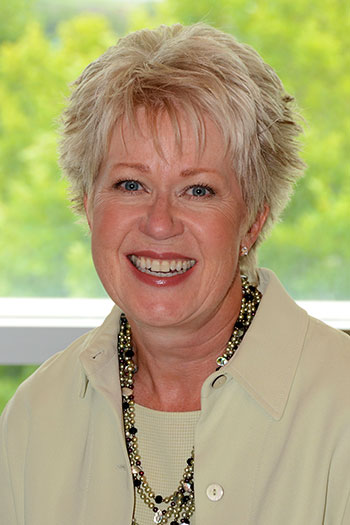
Carole Robinson
With a growing trend of people choosing to die at home, UBC researchers have determined that those caring for palliative loved-ones need more support from health care professionals than they are currently getting.
Carole Robinson, a nursing professor at UBC’s Okanagan campus, says while many people would like to die at home, a sudden decline in health may mean they end up in hospital or a hospice. In previous research, Robinson and her team learned that sheer determination is not enough to make sure that family caregivers are able to achieve a desired home death for their loved ones. This led her team to ask, ‘what enables family caregivers to successfully care for a loved one at home until death?’
“The family caregivers were willing to do whatever was required to meet the needs of the ill person,” says Robinson. “Their determination was based on love, respect, obligation, or giving back to someone who had given them so much—and as a way to honour their ill family member’s wishes. However, caring at home was challenging.
Her research team interviewed 29 people who cared for someone at home until their death to better understand their experience. They learned that while caregivers were committed to the task, they faced roadblocks profound fatigue and lack of support from health care professionals.
The experience of being “on 24/7” was common, Robinson explains, as were symptom-management challenges and crises, and demands associated with multiple co-occurring life events. But because the caregivers were intensely committed to providing excellent care they took initiative and learned on their own by diligently searching for and synthesizing information, making keen observations, engaging in creative problem solving and taking a position of vigilant advocacy for the ill person.
Regardless of their focused determination, all study participants struggled with a lack of coordination and continuity of care from healthcare providers, Robinson says. Some explained that when support was given, it added other responsibilities such as the need to repeatedly orient new caregivers, and even supervise this ‘outside’ help. These experiences prompted some caregivers to refuse further assistance. Respite was desired but often did not offer the support that was needed when it occurred outside the home. This is where extended family was helpful because respite could happen at home with a trusted provider.
“Family caregivers who are determined to deliver care at home, and are willing to do this until the death of their family member, cannot do it alone—it requires a network of support,” says Robinson.
Family caregivers highlighted the importance of being part of a formal palliative care program because then their access to resources and solutions improved dramatically. When things went well, health care providers helped shape care so that the system met the family needs rather than family being required to adapt to the health system needs. While help is needed for the family caregiver, Robinson says professional providers need to re-think the process of dying at home.
“We must begin to envision the home as the place where people can die, anticipate what may be needed, and put it in place,” she says. “We must change our orientation to the system of care within the home, and then recognize the key position of the primary caregiver. The system must work for the family instead of the other way around. ”
This research, funded by the British Columbia Cancer Foundation, was recently published in the Journal of Supportive Care in Cancer.
—30—